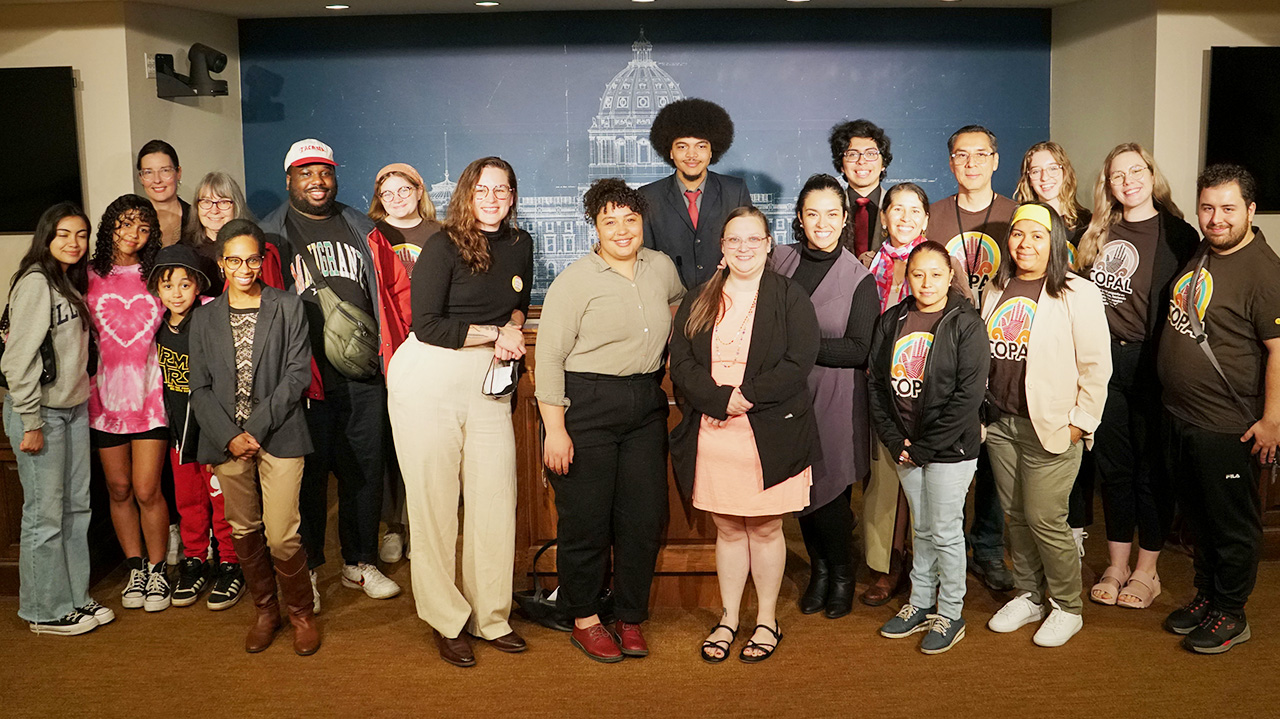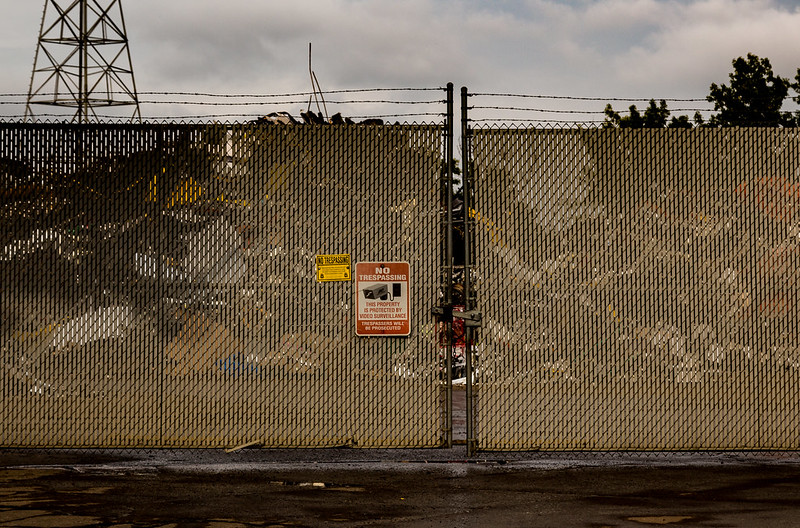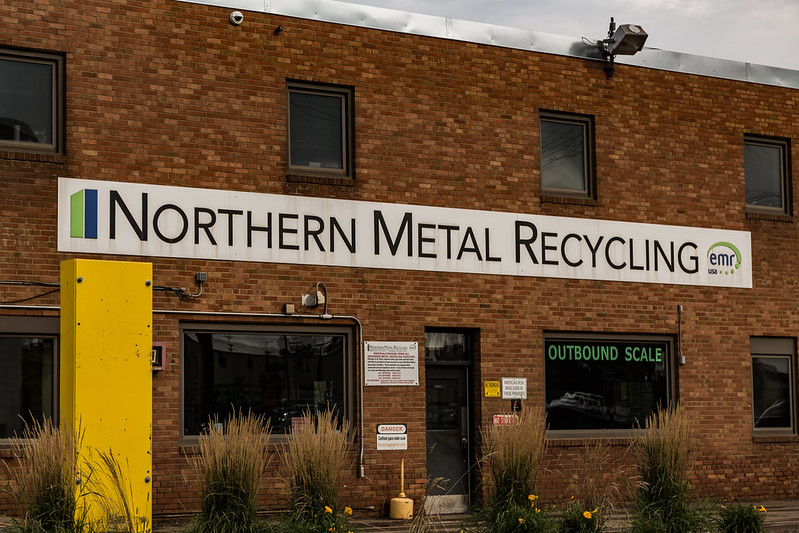
Fresh Energy is committed to ensuring an equitable and just energy transition as Minnesota builds a carbon-neutral economy. A key focus of work in our Energy Access and Equity team is protecting Minnesota’s most vulnerable communities from pollution.
In 2023, the Minnesota Legislature passed the Frontline Communities Protection Act (FCPA), a law with significant equity and justice impacts that will give some communities stronger regulatory protections against pollution.
Many Minnesota communities are already overburdened by decades of existing pollution, and the FCPA will ensure that the state considers these already existing cumulative impacts from environmental pollution in locations where new projects are being proposed. But what exactly is the FCPA, and how does it protect overburdened communities in Minnesota from pollution? Keep reading to find out.
What is the Frontline Communities Protection Act (FCPA), and why is it important?
The FCPA is a new regulatory process in Minnesota that will help protect communities that already face high levels of pollution from more polluting industries being built.
When a new polluting business is being proposed in a community, it undergoes environmental review and permitting to ensure it doesn’t illegally harm the surrounding community. Before the FCPA was passed, state law only required the Minnesota Pollution Control Agency (MPCA) to evaluate the individual environmental impact of a proposed facility without considering the existing pollution levels the community already experiences. Under the FCPA, state law now directs the MPCA to conduct cumulative impact studies when issuing or denying a permit, meaning it must evaluate the total pollution levels in a community when considering a new facility.

Cumulative impacts is a bit of a mouthful to say and understand, so let’s use an analogy to describe it. If you love to eat spicy food and decided to make soup, you might instinctively reach for the cayenne pepper to generously sprinkle in. But that would be a huge mistake if the soup already had jalapenos and hot peppers in it! It’s better to taste the soup before adding the cayenne pepper, otherwise you’d add too much spice and ruin the meal for everyone.
Cumulative impact studies follow the same idea: it’s better to consider the full picture before adding something new. Just like we should check the spicy ingredients in a soup before adding a few dashes of cayenne pepper, we should consider how much pollution a community already faces before building another polluting facility. If a community is already overburdened with a lot of pollution, it might not make sense to issue a permit to build another polluting facility.
The FCPA was crafted by a local, grassroots coalition
The FCPA was championed by the grassroots coalition Community Members for Environmental Justice (CMEJ), founded and led by Roxxanne O’Brien in 2018, in North Minneapolis, and the Frontline Communities Protection Coalition. Fresh Energy was involved as a coalition member and has supported the coalition’s work since 2020. We would like to recognize and thank other coalition members for leading and supporting this important legislation, along with North Minneapolis bill authors Representative Fue Lee and Senator Bobby Joe Champion.
The FCPA was crafted in response to Northern Metal, a recycling facility that shredded cars and other metals into scrap metal, in turn releasing carcinogenic and toxic emissions into the surrounding North Minneapolis community. The company also violated its permit and altered its pollution records to falsely appear within a safe range, resulting in a $200,000 fine. This facility had compounding pollution effects on the local community, which was also near the highway and the Hennepin Energy Recovery Center (HERC) incinerator. Community members felt there should be a better policy in place to ensure that a community isn’t exposed to more polluting facilities than is safe.

“Legislation and policy are hopeful tools to stop things from happening again and to show the data from the experiences of environmental injustice faced by communities of color and economically underserved areas,” said Janiece Watts, director of culture and partnerships. “This is the origin of the Frontline Communities Protection Act.”
How the FCPA will work
The FCPA will go into effect in the seven-county Metro area, Duluth, Rochester, and tribal nations that voluntarily adopt it. The FCPA does not apply anywhere else in Minnesota, which the Frontline Communities Protection Coalition felt was an unfortunate loss from the legislation, as there are many Minnesotans that could benefit from having more information about pollution levels from facilities in their communities. The MPCA will oversee how a proposed facility will affect the air quality within a one-mile distance. It will also oversee a cumulative impact analysis to decide if the proposed facility, along with existing environmental stressors, would negatively affect the health of nearby residents when deciding to issue or deny a permit.
The FCPA will also allow for more public hearings and input to be made when a facility is proposed. It will also allow local organizations and the proposed facility to create a “community benefit agreement” if the local community decides that it would like to allow the proposed facility to be built despite its polluting effects. A Community Benefit Agreement (CBA) is a contract between a developer and the surrounding community for specific benefits the community will receive in exchange for supporting the project. These community benefits can include things like required benchmarks for local hiring, providing living wages and affordable housing, providing funding for local facilities and parks, and other benefits to the community.
What’s next
Fresh Energy looks forward to working with coalition members to continue looking for additional tools that can help communities, especially those overburdened by pollution and environmental degradation. We will continue to engage with the MPCA to ensure environmental justice programs like the FCPA are implemented well and benefit communities as intended.
“Achieving equity is as much about the process as it is about the outcome. Equity must be deliberately built within a process for equitable outcomes to be achieved,” says Janiece Watts. “The Coalition will continue to shape this process and better ensure we can build positive outcomes for overburdened communities in an equitable, just manner.”
